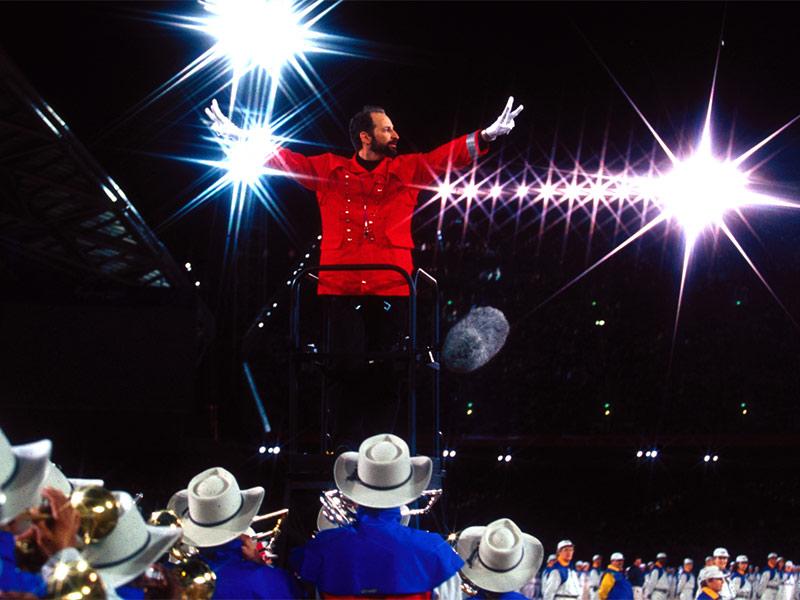Maestro of the Olympics
This weekend, millions of people worldwide will tune in to the opening ceremony of the 2016 Summer Olympics on Friday (Aug. 5), enjoying a lavish display of culture, creativity and sport in Rio de Janeiro, Brazil. Comparatively fewer folks, however, know just how much work goes into creating that celebration.
Barry Spanier, director of bands at Tulane University, served as artistic director of bands for the Sydney Olympics in 2000 where he conducted an ensemble of 2,000 performers at once. He knows firsthand what it’s like to stage a concert that the whole world is watching.
Spanier got his start at the Los Angeles Olympics in 1984, working as an assistant conductor after graduating from the University of Southern California. There he met the producers who would later invite him to coordinate music for the World Exposition and, eventually, Sydney.
“The logistics were outrageous. It was like a huge puzzle.”
Barry Spanier
“The logistics were outrageous,” he recalls today. “It was like a huge puzzle.” Planning, show design and recruiting started as early as 1995, with rehearsals beginning in 1998, two years before the games. The musicians, all high-school students, came from 23 countries around the world, to plan both a 10-minute field show and a nearly two-hour performance during the Parade of Athletes.
Despite the years of planning, the band only had 10 days together in Australia and two full dress rehearsals before the actual ceremony. In Spanier’s words, “One performance, no second chances, and the largest audience in the world.”
“Time,” he laughs, “is not your friend.”
For Rio, Spanier says, viewers should expect a “lively, colorful and energetic display,” with a focus on Carnival that will immediately resonate with New Orleanians. Today, he still looks back with pride on the exertion and exhilaration of his own night 16 years ago.
Yet one question remains, however: Should conducting be considered an Olympic sport?

